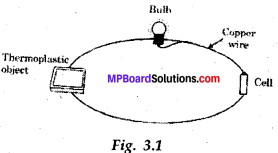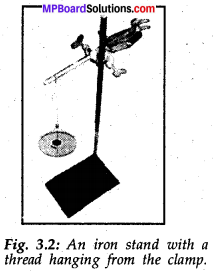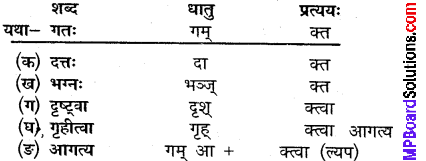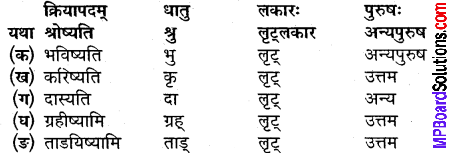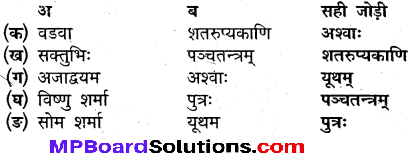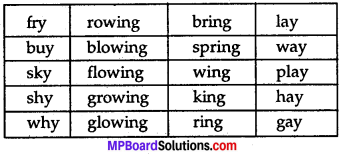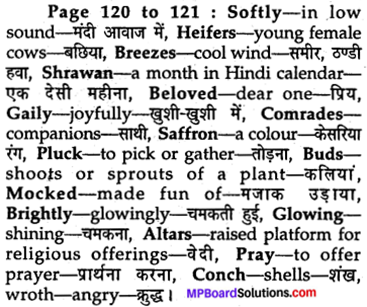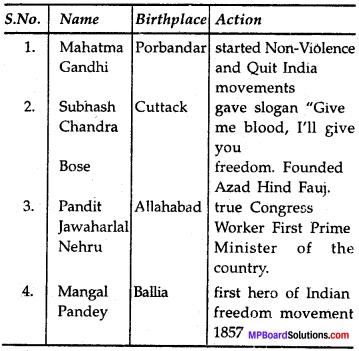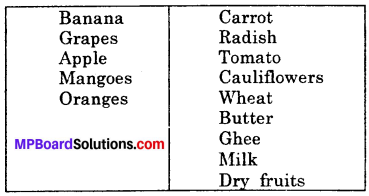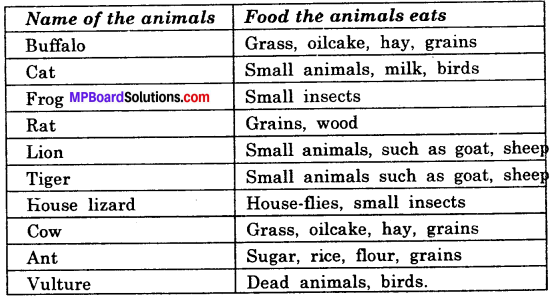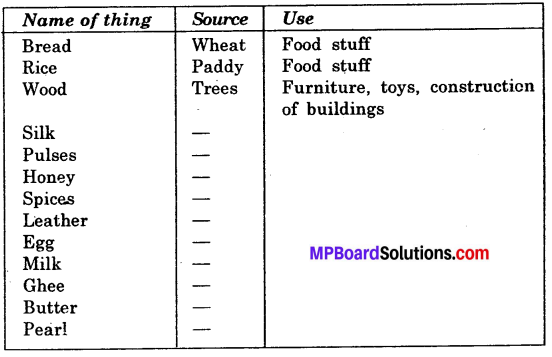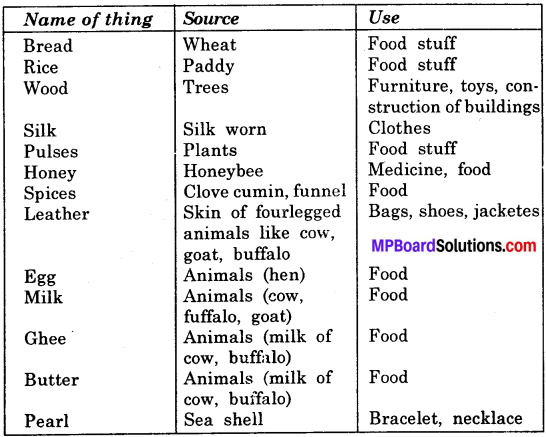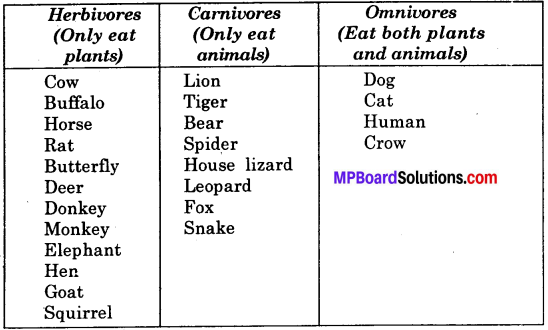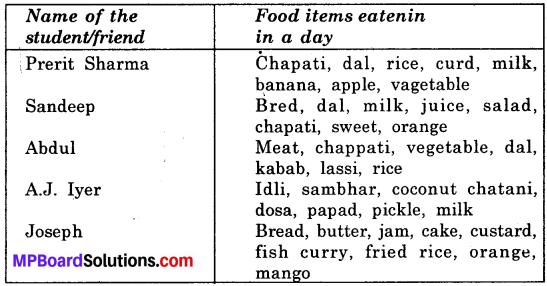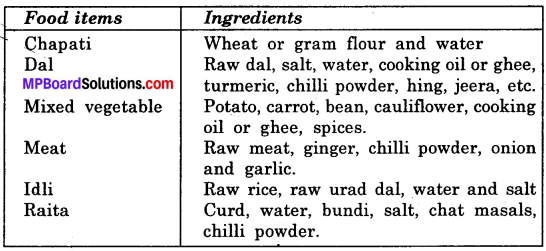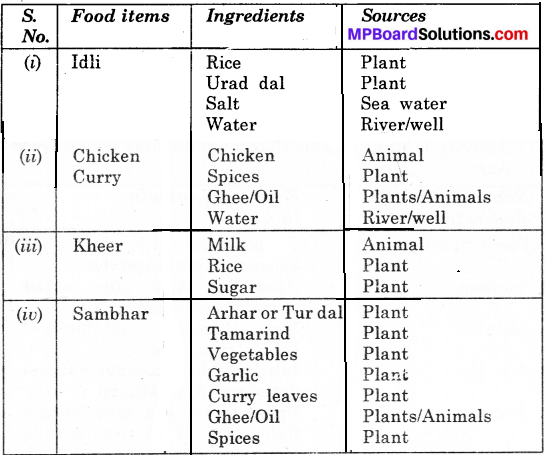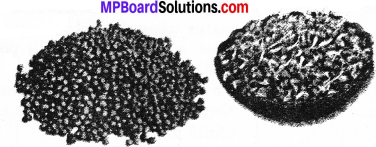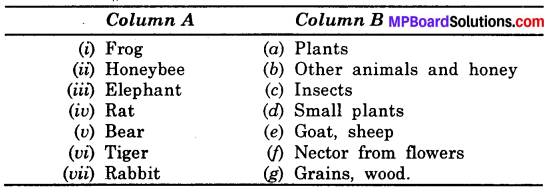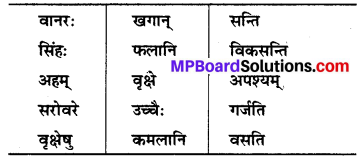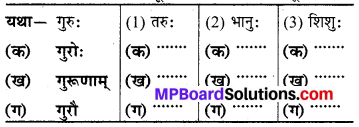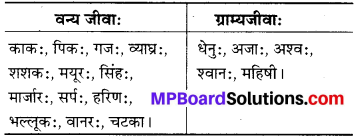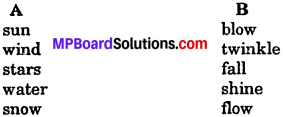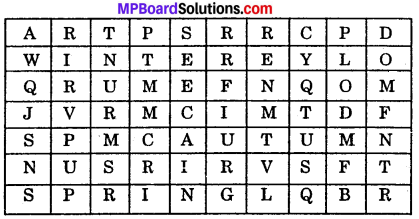Get Updated MP Board Solutions for Class 7 General English Letter and Application Writing Questions and Answers in PDF Format and download them free of cost. These are provided as per the latest exam pattern and syllabus. Access the topics of Chapter wise and communication skills, grammer part through the direct links available depending on the need. You can Download MP Board Class 7 English Solutions and can score highest grade in examination. Clear all your queries on the Mp Board Solutions for Class 7 English Chapter 21 Tansen Questions and Answers Subject by using the Madhya Pradesh State Board Solutions for existing.
MP Board Class 7th General English Letter and Application Writing
If you are eager to know about the Madhya Pradesh State Board Solutions for Class 7 English you will find all of them here. You can identify the knowledge gap using these MP Board Solutions for English PDF and plan accordingly. Don’t worry about the accuracy as they are given after extensive research by people having subject knowledge along side from the latest English Syllabus.
Applications (प्रार्थना पत्र)
Application For Class 7 MP Board Question 1.
Write an application to your school principal for four days leave as you are going out of station.
Answer:
To
The Principal, Janta Junior School,
Gwalior
Sir,
Most respectfully I beg to say that I am a student fo class VII-B. I have to go to Delhi for attending my brother’s marriage. Kindly grant me leave for four days. I shall be highly obliged to you.
Thanking you,
Date : 19th August, 20…..
Yours obediently,
Mukul Jain Roll No. 7
Class VII-A
Application For 7th Class MP Board Question 2.
Write an application to your principal to take you on a picnic.
Answer:
To
The Principal,
Govt. Middle School,
Bhopal
Respected sir,
With due salutations and respect I beg to state that I am the monitor of class VII-A and on behalf of all the students of class VII, I request you to take us to a class picnic. We shall be highly obliged if you grant our request.
Thanking you,
Date : 10th October, 20…..
Yours obediently
Mehul Garg
Class VII-A
Application For Class 7th MP Board Question 3.
Write an application to your principal for two days sick leave.
Answer:
Το
The Principal,
V. J. Middle School, Guna
Sir,
I beg to say that I am suffering from fever since last night i.e., 4th October 20……. Therefore, I won’t be able to attend school. Kindly grant me leave for two days.
Thanking you,
Date : 5th October, 20 ………
Yours sincerely,
Ashutosh Tiwari
Class VII-B
Letters
(पत्र)
Application Writing For Class 7 MP Board Question 1.
Write a letter to your sister, asking her to come and visit you for the coming festival.
Answer:
22, Ashok Nagar,
Indore (West) M. P.
Oct. 11, 20……
My dear sister Anu,
I want to inform you that our parents have decided to celebrate ‘Deepawali’ here with our family. Our elder brother has agreed to reach by 13th of October. Therefore, I request you to come to us and pay a visit for the coming Deepawali on 17th October, 20….. Rest is O. K.
Thanking you,
Yours younger brother,
Mohan G
Leave Application For Class 7 MP Board Question 2.
Write a letter to your friend telling him about the Sports Meet in your school.
Answer:
10, Raghava Pura,
Ram Nagar, Indore
10-2-20……
My dear Mahesh,
In the month of January, ‘Sports Meet’ Programme was held in my school. Different sports took place. Most attractive games were cricket and football. The players of school topped the list of winners of Gold medals. The D. M. was the chief guest. The function was over with a lecture of our Principal. Rest is O. K.
Waiting for your letter.
Yours
Mahendra
Applications For Class 7 MP Board Question 3.
Write a letter to your father telling him how you enjoyed your school picnic.
Answer:
School Hostel
4, Rajpur (M.P.)
4 – 5 – 20…….
Respected Father,
The students of class VIII arranged picnic. We hired a bus and reached Government Park. We saw it for the first time. It is very beautiful and attractive. My friends read their poems and sang songs. We all had our lunch there. Then we played antakshari with our teachers. We really enjoyed a lot. Everything was 0. K.
Thanks,
Yours obedient son/daughter,
Mohan/Mohini
Class-VII
7th Class Ki Application MP Board Question 4.
You are living in a village and write a letter to our friend to spend the summer vacation with you.
Answer:
Vill.–Sohanpura, Post-Awagarh
Distt. KATNI
January 11, 20…
Dear Harish,
Our school has closed for the summer vacation. Last night, we were talking of you. Father and mother asked me to invite you during the vacations. I needed no pressing as I long to have you in our midst. The rains have set in. The weather is pleasant. The mango trees are laden with sweet juicy fruits and when you come we will enjoy them to our heart’s content. I hope you will not disappoint me.
Very Sincerely yours,
Parishkrat
Question 5.
Write an application to the Principal of your school for full fee concession.
Answer:
The Principal,
H. S. Secondry School,
Gwalior.
Sir,
I am a poor student. My father’s monthly income is only Rs.5000/-. He cannot afford to pay my school fees. I beg to add that I came first at the last examination.
I request you to grant me full fee concession so that I may continue my studies.
Thanking you,
Your most obedient student.
Deepak Sharma
Class VII A
Date : 15 April 20…..
We believe the information shared regarding MP Board Solutions for Class 7 English Chapter 21 Tansen Questions and Answers as far as our knowledge is concerned is true and reliable. In case of any queries or suggestions do leave us your feedback and our team will guide you at soonest possibility. Bookmark our site to avail latest updates on several state board Solutions at your fingertips.

